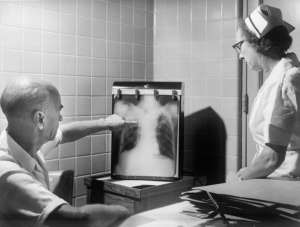Why Doctor Revalidation Is Crucial for Healthcare Quality Assurance
Doctor revalidation is a cornerstone of healthcare quality assurance in the UK. It is a process that ensures doctors remain fit to practice and up to date with the evolving standards of medical care. Introduced by the General Medical Council (GMC) in 2012, this system has transformed how doctors demonstrate their commitment to professional development and patient safety. In this article, we will explore why doctor revalidation is so crucial, the key benefits it offers to healthcare systems, and how it helps uphold the highest standards of patient care.
1. Maintaining Professional Standards
Why It Matters:
Healthcare is a dynamic field, with medical knowledge and practices evolving rapidly. Revalidation ensures that doctors stay informed about these changes, maintaining high professional standards.
How It Helps:
- Continued Learning: Through revalidation, doctors are required to engage in Continuing Professional Development (CPD) activities. These include attending workshops, completing courses, and staying updated on the latest medical advancements.
- Benchmarking Competence: Revalidation provides a structured framework for assessing whether a doctor's skills and knowledge meet the required standards, ensuring consistency across the profession.
2. Ensuring Patient Safety
Why It Matters:
Patient safety is the bedrock of quality healthcare. Doctor revalidation plays a critical role in minimising risks to patients by identifying areas where doctors might need improvement.
How It Helps:
- Accountability: The process ensures doctors reflect on their practice, enabling them to identify and address gaps in their knowledge or skills.
- Feedback Integration: Patient and colleague feedback collected during revalidation provides valuable insights into a doctor's performance, helping them enhance their care delivery.
- Risk Mitigation: By mandating regular reviews and appraisals, revalidation reduces the likelihood of medical errors, safeguarding patient trust and wellbeing.
3. Promoting a Culture of Reflection
Why It Matters:
Reflection is a vital aspect of professional growth, encouraging doctors to evaluate their experiences and learn from them.
How It Helps:
- Improved Decision-Making: Reflective practices allow doctors to assess past decisions, ensuring they make better-informed choices in the future.
- Personal and Professional Growth: Revalidation provides a structured opportunity for doctors to reflect on their achievements and challenges, fostering continuous improvement.
- Enhanced Patient Interaction: By reflecting on patient feedback, doctors can adapt their approach to communication and care, ensuring better outcomes.
4. Strengthening Public Confidence
Why It Matters:
Public trust is paramount in healthcare. Patients need to feel assured that their doctors are competent, ethical, and committed to delivering high-quality care.
How It Helps:
- Transparency: Revalidation assures patients that doctors undergo regular assessments to verify their competence.
- Reinforcing Trust: Knowing that a robust system like doctor revalidation exists can enhance patient confidence in the healthcare system.
- Demonstrating Commitment: By actively participating in revalidation, doctors showcase their dedication to maintaining high standards and prioritising patient welfare.
5. Encouraging Collaboration and Feedback
Why It Matters:
Healthcare is inherently collaborative. Doctors interact with colleagues, patients, and multidisciplinary teams, making feedback an essential part of their development.
How It Helps:
- Constructive Insights: Revalidation encourages doctors to seek feedback from peers and patients, offering a comprehensive view of their strengths and areas for improvement.
- Teamwork Enhancement: Incorporating colleague feedback fosters better communication and teamwork, leading to more effective care delivery.
- Patient-Centred Care: Feedback from patients ensures that care remains aligned with their needs and expectations.
6. Adapting to Evolving Healthcare Landscapes
Why It Matters:
With advancements in technology, research, and medical practices, doctors must adapt to new methods and tools to provide the best care possible.
How It Helps:
- Integration of New Technologies: Revalidation encourages doctors to stay informed about emerging medical technologies, ensuring they are prepared to incorporate them into their practice.
- Evidence-Based Practices: By keeping up with the latest research, doctors can apply evidence-based approaches to diagnosis and treatment.
- Preparedness for Change: The process ensures doctors are equipped to navigate the dynamic nature of healthcare, from policy changes to global health challenges.
7. Reducing Professional Isolation
Why It Matters:
Doctors, particularly those in private practice or remote areas, can experience professional isolation, which may hinder their development.
How It Helps:
- Structured Engagement: Revalidation provides a framework for regular interactions with appraisers, peers, and governing bodies, keeping doctors connected to the wider medical community.
- Peer Learning: Sharing experiences and insights during the revalidation process helps doctors learn from each other and adopt best practices.
- Support Systems: Regular appraisals and feedback mechanisms ensure doctors have access to guidance and mentorship when needed.
8. Supporting Ethical Practice
Why It Matters:
Ethics form the foundation of medical practice. Doctor revalidation reinforces the importance of ethical behaviour and decision-making in healthcare.
How It Helps:
- Accountability: By requiring doctors to provide evidence of their practice, revalidation promotes ethical transparency.
- Awareness of Responsibilities: The process encourages doctors to reflect on their ethical responsibilities, ensuring they uphold the principles of medical professionalism.
- Safeguarding Integrity: Regular reviews ensure doctors maintain honesty and integrity in their interactions with patients and colleagues.
9. Aligning with Organisational Goals
Why It Matters:
Healthcare organisations aim to deliver consistent, high-quality care. Doctor revalidation aligns individual performance with organisational objectives.
How It Helps:
- Consistency Across Teams: Revalidation ensures that all doctors meet the same professional standards, fostering uniformity in care delivery.
- Improved Outcomes: By addressing areas for improvement, revalidation contributes to better clinical outcomes and organisational performance.
- Enhanced Reputation: Organisations benefit from the assurance that their doctors are competent and compliant, boosting their credibility.
10 .Preparing for Career Progression
Why It Matters:
For doctors aspiring to advance their careers, revalidation provides an excellent platform to showcase their achievements and readiness for new challenges.
How It Helps:
- Building a Comprehensive Portfolio: The documentation required for revalidation highlights a doctor's skills, knowledge, and contributions, which can be valuable for promotions or new opportunities.
- Demonstrating Leadership Potential: Reflection and feedback collected during revalidation can highlight leadership qualities and a commitment to professional growth.
- Creating Opportunities: By staying current and meeting high standards, doctors position themselves as strong candidates for career advancement.
Conslusion:
Doctor revalidation is far more than a regulatory requirement; it is a vital mechanism for ensuring healthcare quality assurance in the UK. By promoting continuous learning, ethical practice, and reflective growth, it empowers doctors to provide the best possible care. At its core, doctor revalidation is about fostering trust – trust among patients, colleagues, and the broader healthcare community.
As the medical landscape evolves, revalidation remains a dynamic tool for aligning individual practice with ever-changing standards. By embracing the process, doctors contribute not only to their personal and professional development but also to the overall excellence of the healthcare system. Whether you're a seasoned practitioner or early in your career, revalidation offers an invaluable opportunity to reflect, grow, and make a lasting impact in the lives of your patients.





